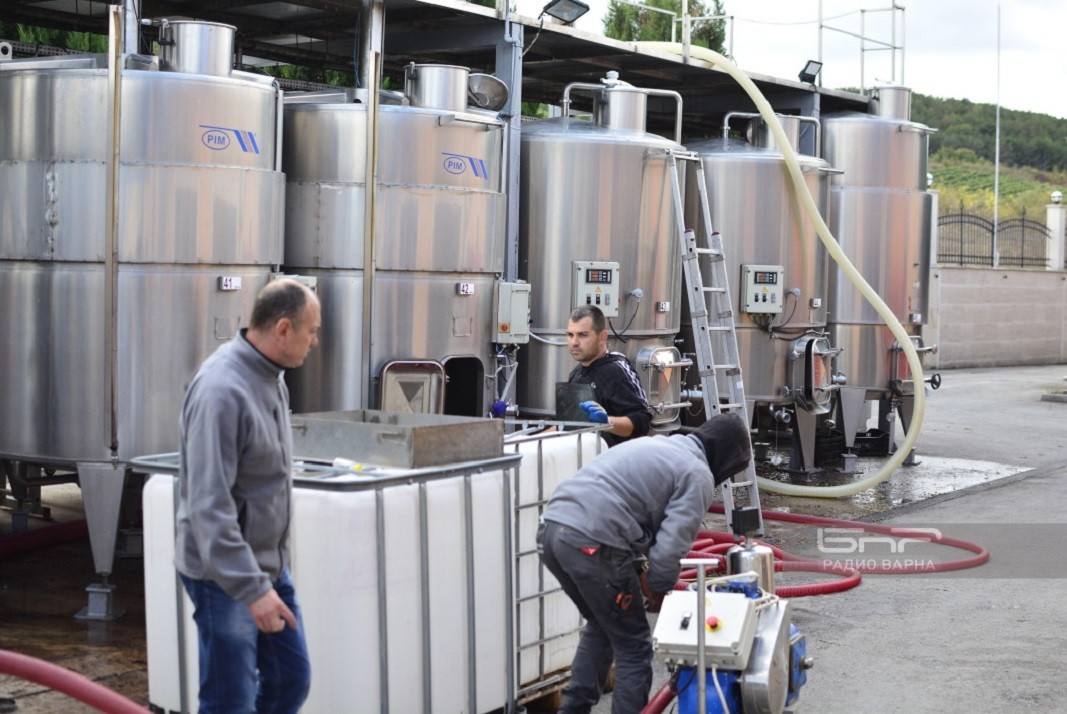Vine growers harvested high-quality grapes this year thanks to the dry summer and the rainy spring. However, wine connoisseurs will have to wait a bit more, because this year’s produce will be on the market next spring.
“Fortunately, Bulgarians continue to drink wine, despite the current crisis. They only started to buy slightly cheaper products. Boxed wine sells extremely well” – said Yordan Chorbadzhiyski, Chairman of the National Vine and Wine Chamber.

“We have witnessed a decrease in sales volumes in the higher price segments- between EUR 7 and 13. Hopefully, consumption will increase after the coronavirus pandemic. Currently, people mainly buy wines that cost around EUR 5 per bottle. Merlot and Cabernet are the most popular red wines and Sauvignon Blanc is the most popular white variety. Consumers also show big interest in rosé wines. Thanks to its wine experts, Bulgaria produces some of the world’s best wines.”

Last year 80% to 90% of Bulgaria’s wine cellars registered a decrease in sales, but representatives of the National Vine and Wine Chamber voiced hopes that this situation would not repeat. The wine cellars deliver their produce to restaurants and hotels, but this sector was brought to a standstill due to the anti-epidemic measures.
“Hopefully, there won’t be another lockdown. I would also like to see Bulgarians more mature and willing to receive Covid-19 vaccines, so that we can return to normality as soon as possible. The quickly this happens, the better, because this country’s economy should function and everyone should be able to work. Grapes are 30% more expensive as compared to last year, which will affect the price of wine and other alcoholic beverages. The situation on the electricity and gas markets is very alarming, because their price saw a three-fold increase and every producer must increase prices, in order to avoid bankruptcy.”

Grape prices have increased, despite the high yields.
“This year’s grape harvest is better than ever. Grape yields varied from 600 to 900 kilograms per decare”, Tihomor Trifonov, chief technologist of a winery in the village of General Kantardzhievo told the BNR-Varna. In his words, 1 kilogram of grapes is enough to make 550-600 ml of wine. The winery in General Kantardzhievo produces around 200,000 bottles of wine annually. It makes 12 types of wines and its produce sells predominantly on the domestic market. The winery exports small quantities abroad, mainly to foreign guests who visited this place before. In Tihomir Trifonov’s words, it takes a lot of effort to make tasty and high-quality wine. Bulgaria’s wine producers are highly assessed by world wine experts. That is why it is not surprising that the International Organization of Vine and Wine (OIV) will open its first office in Bulgaria, most likely in Plovdiv.
English version: Kostadin Atanasov
Photos: BGNES, BNR and libraryFor the first time, Bulgaria’s Minister of Finance Temenuzhka Petkova took part as an observer in the regular meeting of the Eurogroup held in Luxembourg, the Ministry of Finance said. Until now, Bulgaria has only participated in Eurogroup..
Since the beginning of the current year, Bulgaria has experienced record heat waves, a series of devastating fires, and a new disaster just days ago – catastrophic floods that claimed human lives . Climate change already has its price – and it is..
Bulgaria will receive EUR 7.4 million in aid from the European Commission to support farmers affected by adverse production conditions in recent months, European Commissioner for Agriculture and Food Christophe Hansen told BTA and clarified that the..
The government approved the draft Law on the 2026 State Budget, as well as the Updated Medium-Term Budget Forecast for the 2026–2028 period. In..

+359 2 9336 661
